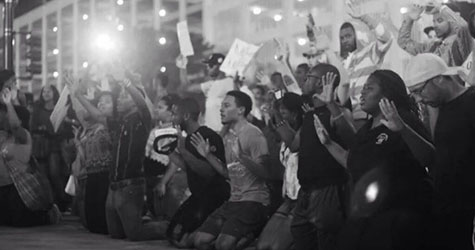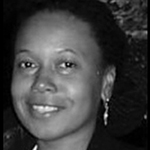
More than half of black youth report that they or someone they know was harassed by or experienced violence from the police, compared with one-third of white youth and one-quarter of Latino youth, according to a new report on black millennials co-authored by researchers at Washington University in St. Louis and the University of Chicago.
“Our findings indicate that the issues raised by activist groups such as #BlackLivesMatter did not spontaneously emerge in response to the shooting deaths of Trayvon Martin and Michael Brown, but rather reflect widespread experiences and beliefs among young people of color,” said co-author Jon C. Rogowski, PhD, assistant professor of political science in Arts & Sciences at Washington University.
Titled “Black Millennials in America: Documenting the experiences, voices and political future of young Black Americans,” the study is co-authored by Cathy Cohen, PhD, the David and Mary Winton Green Professor of Political Science at the University of Chicago.
The report’s findings are based on several national surveys conducted over the last decade by The Black Youth Project, a research initiative housed at the Center for the Study of Race, Politics, and Culture at the University of Chicago.
The project is dedicated to providing a more nuanced understanding of the lived experiences and political attitudes of Black Millennials, including those raised by the recent spate of police shootings of black youth and the Black Lives Matter movement.

The study shows sharp divides between black, white and Latino millennials in terms of their day-to-day experiences and their attitudes toward a wide range of social, economic and political issues, including jobs, unemployment, gun violence, health care, immigration reform, crime, community policing, incarceration and the legal system.
“The statistics are sobering,” Rogowski said. “Gun-related homicides among black young adults are more than 17 times higher than they are for white young adults, and nearly four times higher than they are for Latino young adults. Gun-related homicides are also about five times higher for Latino young adults than they are for white young adults.

Likewise, in our original surveys, more than 40 percent of young black and Latino adults said they were “very” or “somewhat” afraid of gun violence, compared with 16 percent of white young adults. Based on these numbers, it is not difficult to understand why young Black and Latino adults overwhelmingly believe it is more important to control gun ownership than it is to protect the rights of gun owners.”
A sampling of other findings include:
- Incarceration rates in 2013 among young black men 18 and 19 years of age were seven times higher than they were for young white men and more than twice as high as for Latino men in the same age group.
- In the second quarter of 2015, unemployment rates were substantially higher for black youth than for white and Latino youth. For instance, 16.6 percent of black youth between the ages of 20 and 24 were unemployed, compared with 10.3 percent of Latino youth and 8.5 percent of white youth in the same age group.
- In 2013, 32 percent of black youth 18-24 years of age lived below the poverty line, compared with 17 percent of white youth and 21 percent of Latino youth in this age group.
- Black youths have voted at higher rates than white youth in the last two presidential elections, despite the fact that black youth were asked for voter identification at rates much higher (72.9 percent) than those reported by young whites (50.8 percent) and young Latinos (60.8 percent).
“Despite the media’s focus on the role of young people in the last two presidential elections, the increases in voter turnout among young adults has been driven almost entirely by increased turnout from young blacks and Latinos, while turnout levels among white youth were relatively unchanged from 2004,” Rogowski said.
“This year, we have seen that presidential candidates from both parties have been forced to address issues raised by #BlackLivesMatter, which further demonstrates the political potency of Black millennials,” he said. “Young black adults express the greatest confidence that they can make a difference by participating in politics even though they, like other millennials, report high levels of frustration with our political leaders.”